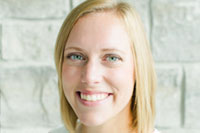 By Denise Bentum, Organizational Learning Team Coordinator
By Denise Bentum, Organizational Learning Team Coordinator
By now you likely know that the Innovation Hub is talking to students in order to learn about their experiences at U of T. But did you know that we are also talking with staff and faculty to learn about their experiences working with students? This lesser-known aspect of the Innovation Hub is the work of the Organizational Learning team. Organizational learning refers to how knowledge is created, shared and preserved within an organization. We are trying to learn about how staff and faculty collaborate in order to share knowledge across divisions and how they collaborate in order to assist students.
The process of the Innovation Hub is intentionally vague and the need for talking to faculty and staff was developed as we realized that students’ experiences cannot be understood separate from the people who work for the University. The Hub’s learning process is socially embedded – designed by and for those whom it is meant to serve. This has been important for the Organizational Learning team to remember, as sometimes it feels like we are weaving through a foggy haze. Our domain is a bit different from both the five domains of the Innovation Hub and the Operations teams. We are our own entity, focussing on bringing in the larger organizational context of U of T through staff and faculty voices to the work of the Hub.
Last week I attended The Agency’s It’s Time to Be Bold Conference, which centres on social innovation. One of the keynote speakers, Zahra Ebrahim, talked about three key considerations when designing something new: desirability (do they want this?), viability (should we do this?), and feasibility (can we do this?). While listening to her speak, a little light bulb went off in my head. It seems to me that the main work of the Organizational Learning (OL) domain focuses on adding depth and understanding to the viability and feasibility aspects of the ideas that the five student-focussed domains generate. This fresh perspective was helpful for clarifying a vision for the OL domain’s work.
We are grateful to the staff and faculty who have generously given us their time and stories through interviews as we move forward in the research phase.
0 comments on “Learning about Our Students from Those Working with Them”